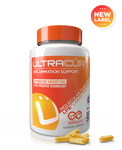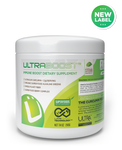Winter is coming soon.
And that means that your “sunshine vitamin” (vitamin D3) levels are sure to decline.
The sun’s rays (and hence vitamin D) can’t reach your skin when you’re bundled up with sweaters, long pants, parkas, and scarves to stay warm.
To keep your vitamin D levels in an optimal range, consider taking supplemental D3 during the winter months. It’s critical for your health.
But be alert to these common mistakes...

Mistakes People Make with Vitamin D -- Do You Make Any of Them?
In recent years, vitamin D has become a very popular and well-known supplement. So there’s a good chance you’re taking it, at least seasonally.
But do you make any of these mistakes with your vitamin D intake?
1. Ignoring the difference between vitamin D2 and D3.
Vitamin D2 is a different form of the vitamin. You get vitamin D3 when you spend time in the sun. Or when you specifically take a D3 supplement. As opposed to getting vitamin D2 from plants and mushrooms exposed to sunlight.
The two forms are unequal for raising your vitamin D status.
Calcifediol is your main circulating form of vitamin D.
Vitamin D2 yields far less calcifediol than an equal amount of D3. So, obviously, D3 is more effective at raising your calcifediol levels.
If you’re taking a vitamin D supplement, make it vitamin D3.

2. Assuming everyone needs the same amount of vitamin D3.
Many factors play into how much vitamin D3 you absorb – whether via sun or supplement.
Efficiency of assimilation depends on several biological and environmental factors, including:
- Skin pigment. Darker complexions synthesize less vitamin D than light-colored skin.
- Genetic variations. Our recent podcast guest Dr. J. Dunn discussed how some people have genetic variations that affect how much vitamin D they can absorb.
- Older age. Older people generally have reduced capacity to assimilate vitamin D. And it’s even worse for institutionalized older adults.
- Certain medical conditions. Including chronic kidney disease, fat malabsorption syndromes, and inflammatory bowel disease.
- Higher body mass indexes. Obesity increases risk of vitamin D deficiency.
- Magnesium status. Magnesium regulates critical enzymes in vitamin D metabolism. So magnesium insufficiency could trigger low vitamin D status.
- Your latitude and access to year-round sunshine at high levels on bare skin.
- Skin exposure. Amount of skin that directly gets the sun's rays.
There’s only one way to know your vitamin D status... measure it with a blood test. Some practitioners recommend testing your vitamin D levels every six months, because they can change across seasons.
3. Assuming there’s consensus on what your vitamin D levels should be.
There’s a lot of disagreement over this issue.
In fact, it may be one reason the RDA is so low... lower than many holistic doctors believe is advisable.
Many holistic medical practitioners want to see their patients' D3 levels in the 50 to 70 range to avoid insufficiency problems.
And levels under 20 would be considered extremely low, even by most conventional doctors today.
We do know that vitamin D3 insufficiency is linked to all-cause mortality, osteoporosis, bone density loss, fractures, muscle weakness, cancer, autoimmune diseases, heart disease, neurodegenerative diseases, adverse pregnancy outcomes, infections, and more.
Vitamin D3 has far-reaching affects on your whole body.
Consult your natural health practitioner about getting tested, and ask what levels the recommend for your personal health.

Skipping This Key Vitamin D “Teammate” Can Trigger Heart Disease
Here’s another serious vitamin D mistake...
In recent years research has emerged showing that taking “solo” vitamin D without this special “teammate” can trigger heart disease.
Which is probably not what you bargained for when decided to take vitamin D3 for your health.
You need vitamin D’s “teammate” vitamin K... especially K2. Yet most people have never even heard of it.
A major role of vitamin D is to ensure sufficient levels of calcium in your blood. Vitamin K2 promotes calcium absorption into your bones... and keeps it from accumulating in your soft tissues – including your blood vessels
Just How Great Is This Risk?
Scientists are still researching just how great this risk D3 without K is.
Current thinking is that especially with high D3 supplementation, you may be increasing your risk of blood vessel calcification (BVC) if you don’t have enough vitamin K2.
In other words, extremely high doses of vitamin D may lead to dangerously high calcium levels and BVC.
Research is ongoing, so the picture will likely become clearer as time goes on. In the meantime, you'll likely want to add vitamin K2 to your D3 regimen.
Benefits of Vitamin K2
Vitamin K plays a vital role in blood clotting, heart health, and bone health.
Calcium buildup in your arteries is a huge risk factor for heart disease.
One study spanning nearly a decade showed that people with the highest intake of K2 were 52% less likely to develop calcification of the arteries. They also had a 57% lower risk of dying from heart disease.
Another large study found that for every 10 mcg of K2 subjects consumed per day, their disease risk dropped by 9%.
Vitamin K1 did not confer those benefits.
Studies show that K2 may also strengthen your bones and teeth.
What to Know About Vitamin K
Like several things in the health world, vitamin K comes in many forms. Here’s what you’ll want to know...
Vitamin K is divided into two groups:
• Vitamin K1 (phylloquinone) – found in leafy green plants like spinach and kale.
• Vitamin K2 (menaquinone) – found primarily in fermented foods like natto, and organ meats such as goose liver and beef liver.
Vitamin K2 is further broken down into various compounds, the most important of which are MK-4 and MK-7.
MK-4 is found in animal foods like liver, fat, egg yolks, and cheese.
MK-7 is found in fermented foods like miso and sauerkraut.
Because vitamins D3 and K2 act like great dancing partners, be sure to take them together for best results.
If you need guidance in how much to take, consult with your natural health practitioner who can measure your D3 levels, and advise you on how much of each to take.




